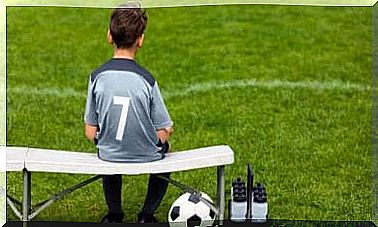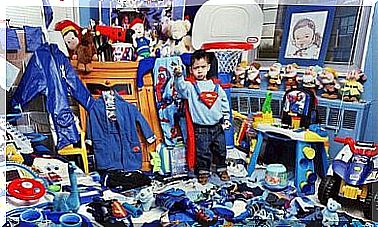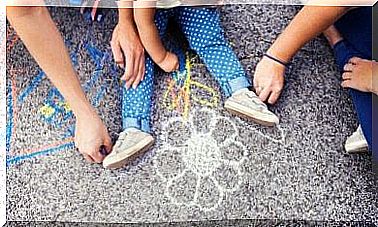Why My Son Has Bad Grades And How To Help Him – Parenthood

Why does my son have bad grades? This is one of the questions that we parents ask ourselves about our children’s failure at school, which we often do not know how to deal with.
First of all, we need to know the real reason for these bad grades. Often, they are not due to the laziness of children; they want to do well, but they can’t.
Sometimes the little ones feel underestimated because of their grades. They think their parents will like them based on whether or not they did well in school. So it’s important to let them know that our love for them is unconditional, regardless of their grades. We need to repeat it to them often so that they can assimilate it well.
Why does my child have bad grades?
The first thing we need to do is rule out the possibility that our children’s bad grades are due to dyslexia or dysorthography, as it requires more specialized attention.

Another reason is that the child is smart, but lazy. Yes, laziness can sometimes be a factor to consider, but often it is not the cause of bad grades. Some of the more common “enemies” of academic success can be:
- Children who are intellectually precocious.
- Children who suffer from separation anxiety.
- They don’t know how to handle their emotions well, especially if they think they have to be successful all the time.
Intellectually precocious children: educating through effort
Children who have high intelligence or who are early in acquiring knowledge find it very easy to understand what they read, without the slightest effort, but there is a problem: learning is not understanding.
Learning takes effort; understanding is easier. These precocious children generally do not make an effort: they follow the law of minimum effort. The important thing here is to gradually correct this lack of effort, not only in school work, but also in sport or in the tasks they perform.
How to help him?
A child who is not educated in the effort can be very gifted intellectually, but he will obtain results which are not in accordance with his intelligence and he will eventually become depressed and closed to studies.
What you need to do is ask for limited effort at the start and motivate the child, offering him a reward after some effort and results. These rewards don’t have to be material, they can be a trip to the movies, an afternoon in the countryside, etc.
My child has bad grades because of separation anxiety
This often happens at an early age due to the separation from the mother, which the children experience as something traumatic: birth of a brother or sister, abrupt weaning, absence of the mother between 18 months and 2 years…
Children with separation anxiety problems, when they are in school without their mother’s presence, are constantly anxious. This anxiety paralyzes the child’s cognitive functioning and he is unable to follow the class and understand what he is ready to understand due to his intellectual capacities.
What can I do ?
If our child is in this situation, we must seek the help of a therapist specializing in this type of problem. Thus, he will be able to get out of this intellectual blockage and return to normal.

It’s not just about being successful, it’s about doing your best
We all need to feel successful in what we do, but sometimes, for children and for some parents, that desire becomes totalitarian.
This is when success becomes an obligation and the child suffers from excessive anxiety and tension to be successful in his grades when this does not happen and the child has not achieved the grade required. ‘he was waiting. This is why he loses his self-confidence and feels dissatisfied, which makes him depressed.
But what if he ends up being depressed? The opposite of what we want: his grades will deteriorate instead of improving.
How to cure it ?
By asking our children to do their best in their exams and exercises, and not focusing on the results, but on their efforts to do their best.
We hope that this information will help you answer the question many parents ask themselves and that you will find some solutions here to help the little ones in the house improve.









